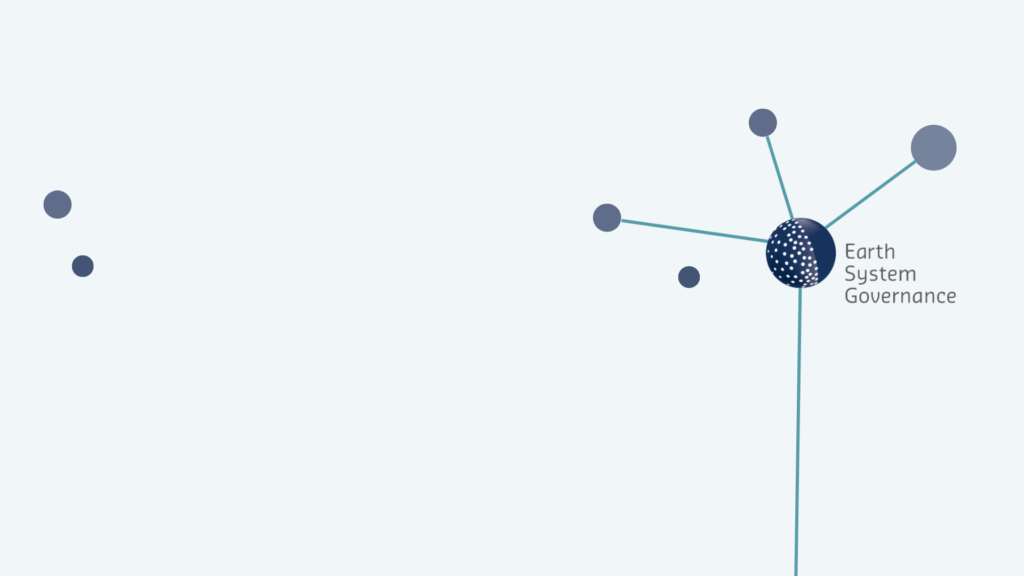Authors: Yixian Sun, Nicki Schantz, Edoardo Eichberg, Taimiya Khalid and Michael Bloofield
As we are at the midpoint to accomplish the 2030 Agenda, it is important to reflect upon the lessons learned on the implementation of the Sustainable Development Goals (SDGs) from the past seven years and identify the ways forward.
On 5 June 2023, the Earth System Governance Research Centre Bath (hosted by the Centre for Development Studies at the University of Bath) organised a workshop in Bath to discuss the future of the SDGs. In collaboration with the ESG Taskforce on the SDGs, this hybrid event gathered over 40 experts on the SDGs – including both researchers and practitioners from various organisations and countries including Utrecht University, Radboud University, University of Oslo, University of A Coruna, Warwick University, Australian National University, Lund University, UK Foreign, Commonwealth and Development Office, Bath and North East Somerset and Bristol City Councils, Action for Sustainable Development, Brookings Institute, Chatham House, Ideas and Action for Public Good and International Institute for Sustainable Development. Throughout the day, the participants discussed key challenges in the SDG implementation and more broadly the goal-based governance approach and brainstormed policy recommendations to governments and the United Nations.
In the morning, Dr Yixian Sun (University of Bath), the workshop’s organiser and co-convener of the ESG Taskforce on the SDGs, opened the workshop by thanking all participants and highlighting the workshop’s aim as to identify knowledge gaps on the SDGs as well as policy recommendations to be sent to the UN Summit in September. The participants then listened to two presentations and had a session of world-café discussion on the limitations of the SDGs.
Prof Frank Biermann (Utrecht University), presented the key findings on the SDG impact assessment led by the GlobalGoals project published in 2022, indicating that the impact of the SDGs remains largely discursive on policies of different actors with limited transformational effects. He encouraged the participants to identify actions and reforms needed for the SDG implementation towards and beyond 2030. Prof Jonathan Dawes (University of Bath) introduced his research on network analysis of the SDG interlinkages. He showed that there are natural linkages among certain SDGs, underscoring that his findings provide a backdrop for rich discussion and raised several questions on policy interventions including which goals should be further promoted given their co-benefits with other goals and what is the pathway to steer interlinkages among the goals in the next seven years to ensure the achievement of the 2030 Agenda.
In the morning’s world café, participants discussed a range of problems related to goal-based governance and challenges to the SDG implementation. There is agreement that the SDGs provide a critical and needed framework and is a meaningful referral point to tangibly explain what sustainable development looks like. However, not much seems to have happened on the ground, so a reality check is needed to assess what has prevented the goals from being more impactful. Some called for a radical simplification focusing on ‘people, prosperity, planet, peace and partnerships’, while others highlighted the lack of political will across governments in truly implementing the SDGs. Many participants also highlighted the need of greater monitoring and accountability mechanisms for the SDG implementation as actors tend to ‘cherry pick’ the goals that can be more easily achieved and institutions dealing with different goals are often work in a siloed way. A more critical view that emerged in the discussion is that the SDGs only reinforce the status quo without challenging the conventional business models causing many global crises.
In the afternoon, participants listened to two presentations focusing on the challenges of implementing the SDGs at different levels and identified policy recommendations towards and after 2030. Prof Pamela Chasek (Manhattan College) discussed the challenges of implementing the SDGs amidst a period of global crises, outlining how the global pandemic, Ukraine war, and existential threat of climate change have held back progress on the SDGs. She suggested that the SDGs are not an agenda to be accomplished by governments alone, so public awareness of and support for the SDG implementation is crucial.
Dr Aurelie Charles (University of Bath) used the case of Bath to discuss various challenges of implementing the SDGs at the local level. She shared her experience of working with local stakeholders to develop a Doughnut Economics Framework developed by Kate Raworth to support the SDG implementation. Representatives from Bath and Bristol councils also shared their views on the SDG implementation and the usefulness of the Doughnut framework.
In the rest of the workshop, participants had breakout group discussions to consider policy recommendations up to and after 2030. The recommendations identified focus on several key themes including reforming the UN High Level Political Forum and voluntary national reviews to enhance accountability, empowering subnational actors for local implementation, making innovative financial mechanisms to support global public goods, providing more support to collect more accurate data on goals and targets, and reconsidering priorities of different countries and regions. Looking ahead, participants pointed to several directions for the goal-based governance approach in the post-2030 era such as reframing the SDGs as ‘sustainability transition goals’, renegotiating goals and targets by taking into account differing needs of high- and low- income countries and the decolonisation agenda, and levering technological advancement and digitization to promote sustainable development.
This event at Bath created an opportunity for ESG researchers and related practitioners to take stock of key challenges to the SDG implementation and identify actions needed to achieve the 2030 Agenda in the next seven years and beyond. The ESG Taskforce on the SDGs will use the insights generated from this workshop to refine its research agenda and make policy recommendations to the SDG summit in September 2023. While the impacts of the SDGs remained limited in the first half of the 2030 Agenda, it is not too late for governments and other actors to take immediate action to accelerate the SDG implementation across different scales and levels. Transformational change would happen only if new momentum can be generated with broader support across the globe and society.
Acknowledgement
The workshop has received financial support from the Internationalisation Fund of the Faculty of Humanities and Social Sciences and administrative support of the Department of Social and Policy Sciences at the University of Bath.

On the ESG Taskforce on the SDGs
This Taskforce were launched in 2021 to provide a platform for promoting research on the SDGs. It now consists of around 100 scholars from more than 30 countries. If you are interested in joining the ESG Taskforce on the SDGs, please contact SDG@earthsystemgovernance.org.
More information on the Taskforce








